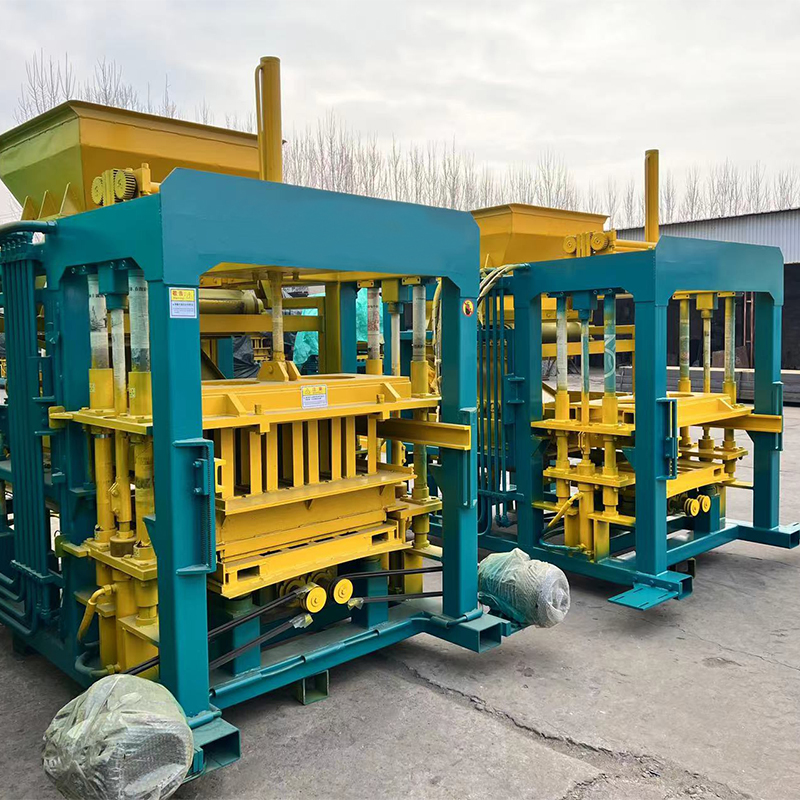
Image source Aiwei Block Machine
Introduction
Bricks and blocks are the fundamental building blocks of construction, and the machines that produce them are integral to the construction process. Historically, brick-making was a labor-intensive and time-consuming task. However, with the advent of modern machinery and technology, the production of bricks and blocks has become highly automated, efficient, and sustainable. In recent years, several noteworthy innovations have emerged in this field, promising to reshape the way we build.
Automation and Robotics
Automation has been a game-changer in the brick and block making industry. Traditional manual processes have been replaced by sophisticated automated machinery, reducing labor costs and human error. These machines can produce thousands of bricks or blocks per hour with remarkable precision.
Robotic Bricklayers
One of the most significant innovations is the development of robotic bricklayers. These robotic arms are equipped with specialized software and sensors that can accurately lay bricks or blocks in a fraction of the time it would take a human worker. Not only do they work faster, but they also minimize the risk of repetitive strain injuries common among human bricklayers.
Automated Brick and Block Sorting
Automated sorting systems have also become standard in brick and block production facilities. These systems use cameras and sensors to identify and sort bricks or blocks based on size, quality, and other criteria. This ensures that only the best products reach the construction site, reducing waste and improving the overall quality of construction.
Sustainable Materials and Processes
In response to growing environmental concerns, the brick and block making industry has been exploring more sustainable materials and processes. Innovations in this area aim to reduce the carbon footprint of construction and promote eco-friendly building practices.
Recycled Materials
One notable innovation is the use of recycled materials in brick and block production. Some manufacturers have started incorporating recycled content, such as crushed glass, plastic, and industrial byproducts, into their products. This not only reduces waste but also conserves natural resources.
Energy-Efficient Kilns
Traditional brick and block kilns are known for their high energy consumption. However, recent innovations have led to the development of energy-efficient kilns that use advanced insulation and heating technologies to reduce energy consumption significantly. Some kilns even utilize renewable energy sources, such as solar power, to further minimize their environmental impact.
Digitalization and IoT Integration
The integration of digital technologies and the Internet of Things (IoT) has transformed the way brick and block maker machinery operates and is monitored. This digital revolution has brought greater control, efficiency, and data-driven decision-making to the industry.
Real-Time Monitoring
Modern brick and block making machines are equipped with sensors that continuously monitor various parameters, such as temperature, pressure, and production speed. This real-time data allows operators to identify and address issues promptly, reducing downtime and optimizing production.
Predictive Maintenance
IoT-enabled machinery can predict when maintenance is needed based on data analysis and wear-and-tear patterns. This proactive approach to maintenance minimizes unexpected breakdowns, further improving the efficiency of production facilities.
High-Performance Machinery
Advancements in materials and engineering have led to the development of high-performance brick and block maker machinery. These machines can produce bricks and blocks with exceptional precision and consistency.
Hydraulic Presses
Hydraulic presses are at the forefront of high-performance brick and block making machinery. They use hydraulic power to compress materials into precise shapes, resulting in bricks and blocks that meet stringent quality standards. These machines are capable of producing a wide range of sizes and designs to meet the diverse needs of construction projects.
Modular Machinery
Modular machinery allows for greater flexibility in brick and block production. Manufacturers can configure these machines to produce different types of bricks and blocks by simply changing the molds and settings. This adaptability reduces the need for multiple specialized machines, streamlining production and saving costs.
Smart Solutions for Quality Control
Ensuring the quality of bricks and blocks is essential for the structural integrity and longevity of buildings. Innovations in quality control have enhanced the ability to produce consistent and reliable building materials.
Automated Testing
Automated testing equipment can quickly and accurately assess the quality of bricks and blocks. These machines use non-destructive testing methods, such as ultrasonic or X-ray scans, to identify defects and weaknesses in the materials. Any subpar products can be removed from the production line before they reach the construction site.
AI-Based Quality Assurance
Artificial intelligence (AI) is being used to develop sophisticated quality assurance systems. These AI systems can analyze data from various sensors and cameras to detect imperfections or deviations from quality standards in real-time. If any issues are identified, the system can make automatic adjustments to the machinery to correct them.
Conclusion
The world of brick and block maker machinery is undergoing a remarkable transformation, driven by automation, sustainability, digitalization, and a commitment to delivering high-quality building materials. These innovations are not only making construction more efficient but also reducing its environmental impact and improving the safety and quality of buildings.
As we move forward, it’s clear that the construction industry will continue to rely on these cutting-edge technologies to meet the demands of a rapidly changing world. The innovations in brick and block maker machinery are not only shaping our buildings but also building a better future for us all. With the ongoing pursuit of excellence and sustainability, the construction industry is poised to make even greater strides in the years to come.
